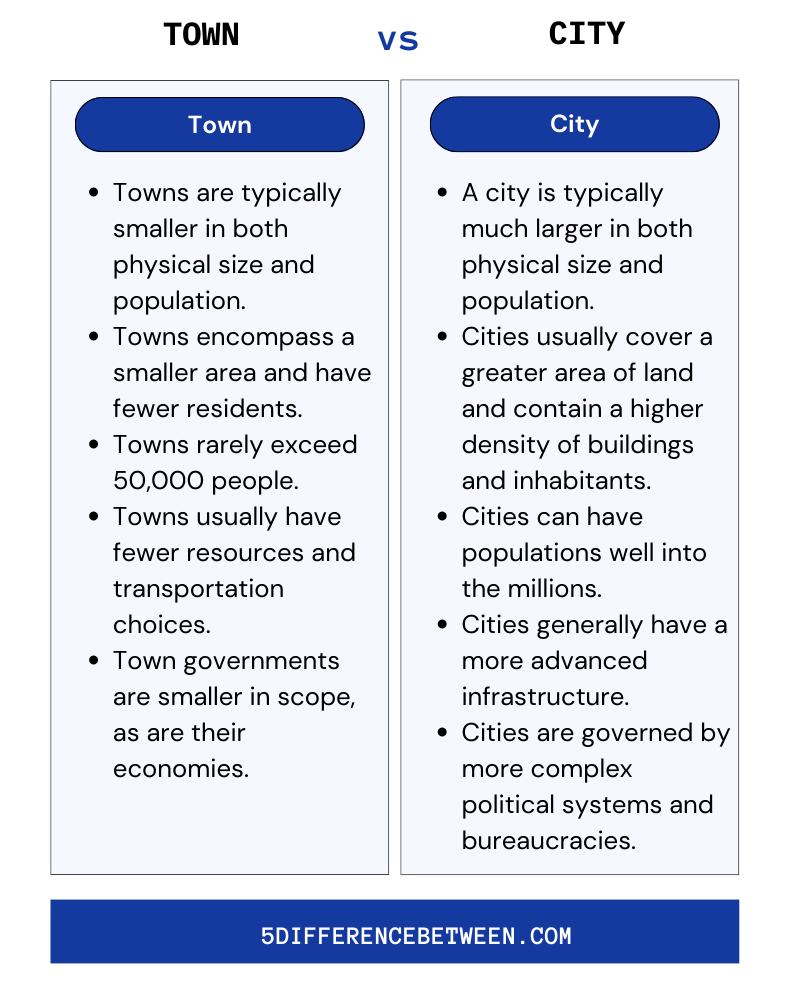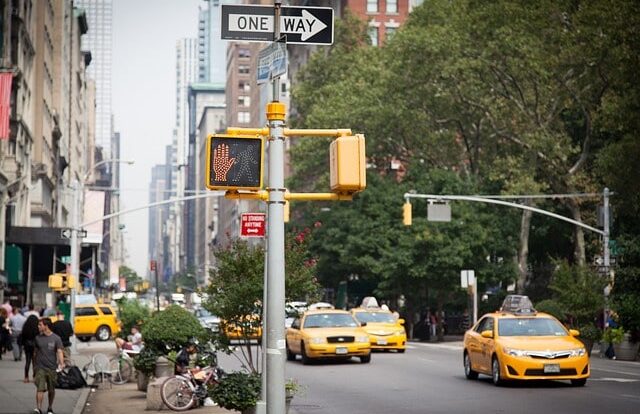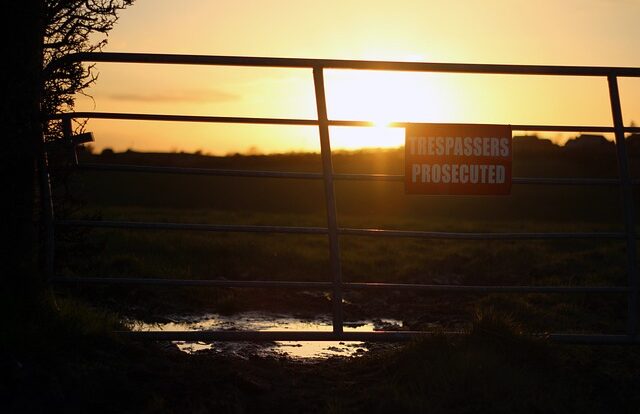A city and a town may seem quite similar, but there are some key differences in their size, population, infrastructure, transportation options, and governance.
What is Defined as a Town?
A town is typically a small community, usually in a rural area, with a modest population. Unlike a city, a town has fewer people, often less than 50,000 residents. Town life moves at a slower pace. Neighbors usually know each other and there’s a sense of community.
Also Read > Difference Between Hotel and Motel
In a town, you’ll find basic amenities like a grocery store, gas station, and post office. There may be a main street with some local shops and restaurants. However, options are limited. For major shopping, healthcare, or entertainment, residents frequently travel to nearby larger towns or cities.
Towns are governed locally, sometimes by a town council. They typically don’t have a robust public transit system, so most people drive to get around. Housing in a town usually consists of single-family homes, with some apartments or townhouses. Rent and the cost of living are normally lower in a town versus a city.
If a peaceful atmosphere and natural surroundings appeal to you, town life could be ideal. You’ll enjoy stargazing at night without excessive light pollution and breathing fresh air. Activities often center around community events, local sports teams, and enjoying the outdoors.
While life in a town moves at a more leisurely pace, if you crave culture, career opportunities, and conveniences, the city may beckon. But for many, the simplicity of town living is most fulfilling. Both town and city have their pros and cons, so determining what lifestyle suits you best comes down to personal preference.
What is Defined as a City?
A city is defined as a large permanent settlement with an urban character and a population of at least 100,000 people. Cities are centers of trade, culture, and economic activity for the surrounding area. They offer more opportunities for employment, healthcare, education, and entertainment.
Compared to small towns, cities typically have taller buildings, more traffic and public transit options, as well as more diversity. The cost of living in a city is usually higher due to demand and limited space. There are many benefits to living in a city, but it really comes down to personal preference and lifestyle.
No matter if you prefer the fast-paced city life or the quiet comforts of a small town, both provide a sense of community and opportunities to lead a fulfilling life. The choice ultimately comes down to the environment that aligns with your priorities and values.
Town Vs City

While a city may seem exciting with its hustle and bustle, a town offers a quieter pace of life with a tighter-knit community. Both have their pros and cons, so choosing between a city or town comes down to your priorities and lifestyle preferences. But no matter where you live, finding the right balance of amenities and atmosphere for you is what really makes a place feel like home.






